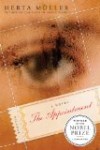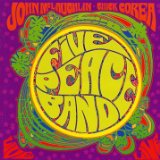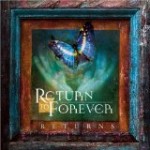|
|
Part of the reason reading is so important to me is the ability of people to express thoughts, ideas and emotions with the written word. I also recognize there are plenty of people who can do that far, far better than I. The latest case in point is a blog entry I came across through the Goodreads blog.
Mandy Brown is a creative director at publisher W.W. Norton & Company. She also has a blog called a working library (actually, the full title appears to be sshhh! This is a working library.). On Sunday, she posted her thoughts on ways of reading. All nine are not only insightful and true, they are so impressive, I couldn’t resist posting a couple of them as an fitting way to end the year.
“Every book alights a path to other books. Follow these paths as far as you can. This is how you build a library.”
“The best library contains both books you have read, and books you have not. The latter should grow in proportion as the library expands. A working library is as much a place for the possible as it is a record of the past.”
Thank you, Mandy, for such cogent observations. I sure wish I’d said it.
A single book struggles to balance on its spine; it pines for neighbors. Keep as many books as you have room for.
Mandy Brown, “Ways of Reading”
In announcing that Herta Müller won the 2009 Nobel Prize for Literature, the Swedish Academy said simply that she is someone who, with her poetry and “the frankness of prose, depicts the landscape of the dispossessed.” In The Appointment, the work of hers most recently translated into English, Müller shows that landscape is not limited to the physical.
 Müller, born in a German-speaking village in Romania, writes almost exclusively about life in that country under the dictatorship of Nicolae Ceauescu. Although subject to that regime’s repression, she emigrated to Germany in 1987, two years before the Ceauescu regime was overthrown. Her novels reflect not only the bleakness of life in Romania but the government’s pervasive control of it. The Appointment, first published in 1997 and translated into English in 2001 by Michael Hulse and Philip Boehm, is no exception. Müller, born in a German-speaking village in Romania, writes almost exclusively about life in that country under the dictatorship of Nicolae Ceauescu. Although subject to that regime’s repression, she emigrated to Germany in 1987, two years before the Ceauescu regime was overthrown. Her novels reflect not only the bleakness of life in Romania but the government’s pervasive control of it. The Appointment, first published in 1997 and translated into English in 2001 by Michael Hulse and Philip Boehm, is no exception.
The slim novel takes place on a single tram ride. The unnamed female narrator, who works in a state factory making clothes, has been summoned to appear “at ten sharp” for the latest in an increasing number of interrogations by Major Albu. Her crime? Putting handwritten notes in the back pockets of 10 white linen suits being shipped to Italy that said, “Marry me” and signed with her name and address. Another note was found in three pair of trousers bound for Sweden saying, “Best wishes from the dictatorship.” The narrator claims she was not responsible for them or additional notes Albu claims were intended for Norway. She believes they were planted by her supervisor as revenge for her refusing to continue to see him after an ill-advised sexual affair while together on a business trip.
Although the tram ride takes 90 minutes, her various observations and the internal monologue they spark cover the breadth of her life. We learn about her past, her friends and family, daily life and Romanian “expropriation” and other government officials, to name a few. All this appears in the landscape of her thoughts and memories. Although her stream of consciousness takes us various places in time and space, there is a fairly diffuse sense of ennui and antipathy.
She believes there are four possible ways for life to play out. “The first and the best: don’t get summoned and don’t go mad, like most people.” The second is to not get summoned but lose your mind anyway. The third is to get summoned and go mad. The fourth is to get summoned but not go mad. Although the narrator believes she is in that fourth category, questions may occasionally arise. That morning, in fact, she observes “there’s nothing to think about, because I myself am nothing, apart from being summoned.”
The Appointment allows the reader to ultimately piece together a fairly full understanding of the narrator’s past and her experiences. It is, however, far from a linear journey. Even more so than most internal monologues, hers is quite scattershot. Her thoughts and memories jump from one fragment or tale to something she sees on the tram or out the window to another fragment of memory, rarely having any chronological order. As such, it echoes the description of Müller’s prose work used by the presenter at her Nobel Prize ceremony: there is “no epic line, no plot with beginning and end.”
Yet perhaps that is what best describes life under a repressive regime. There is nothing epic in making it through another day or, if there is, it is understood and remains unstated by and among your friends and family. The abrading strain of stifling your speech, emotions and actions could easily make life seem interminable or, at a minimum, genuinely impoverished. The question of who to trust and whether they will betray you also seems to have no end. Müller, who won the International IMPAC Dublin Literary Award in 1998 for her novel The Land of Green Plums, plainly conveys that with the style, tone and approach of The Appointment. The question is whether the internal monologue upon which it is built is too fragmented and bleak to find a place with American readers.
The trick is not to go mad.
Herta Müller, The Appointment
As the end of the year approaches (and with it my books of the year post), I think I’ve settled on my reading challenges for the next. Because I am still in the midst of the Random Reading Challenge, at least for now I’m only doing three others this year:
As I previously noted, I’m going to stay with the Notable Books Challenge at the six book level.
I’m adding the Social Justice Challenge, where this month’s “theme” is religious freedom. I found this challenge appealing not only because of its purpose but you can decide each month whether to participate and at what level. That makes it a bit more amenable to the varying demands of real life.
Finally, I was intrigued enough to decide upon the 451 Challenge. It is based on Ray Bradbury’s Fahrenheit 451, where people memorize a book, word for word, to keep it alive for the next generation. The challenge allows you to pick from a list of 451 books deemed by people to be worthy of saving. I’m starting out at three to four books but am hoping to do seven.
A count for each challenge, as well as a badge or logo where available, will be in the right sidebar. In addition to broadening what I read, perhaps these challenges will also lead to a few of the “microreviews” I hope to do next year.
Literature is a defense against the attacks of life.
Cesare Pavese, This Business of Living: Diaries 1935-1950
With Springsteen and Dylan both releasing new CDs in 2009, you would think that would simplify my choices for album of the year. But Working on a Dream ranks as a below average Springsteen release and I’m enough of a Grinch that even Dylan doesn’t make me want to buy a CD of Christmas songs. (I would note in my defense that Amazon placed the Dylan CD 10th on its list of the best comedy albums of 2009.)
This year’s recordings, in fact, led me to somewhat modify one of the rules I’ve used in the past in selecting my favorites of the year. I usually don’t consider live albums because they tend to be contain almost exclusively previously released music. Yet this year my three favorite albums were live recordings. Applying the rule’s intent led to my favorite album being selected somewhat by default — but that in no way means it wasn’t at the top of the list anyway.
 Five Peace Band Live isn’t excluded by the live album rule because this is not a band that released prior recordings. Rather this two-CD set comes from a series of 2008 European concerts by Chick Corea, John McLaughlin, Christian McBride, Kenny Garrett, and Vinnie Colaiuta. Bitches Brew and Corea would go on to form Return to Forever while McLaughlin would head up the Mahavishnu Orchestra. This album has a sense of each of those bands while Kenny Garrett’s exceptional sax work gives a feel for Weather Report. For whatever reason, Garrett had not previously crossed my radar — at least to my knowledge — and this CD makes me a big fan. Five Peace Band Live isn’t excluded by the live album rule because this is not a band that released prior recordings. Rather this two-CD set comes from a series of 2008 European concerts by Chick Corea, John McLaughlin, Christian McBride, Kenny Garrett, and Vinnie Colaiuta. Bitches Brew and Corea would go on to form Return to Forever while McLaughlin would head up the Mahavishnu Orchestra. This album has a sense of each of those bands while Kenny Garrett’s exceptional sax work gives a feel for Weather Report. For whatever reason, Garrett had not previously crossed my radar — at least to my knowledge — and this CD makes me a big fan.
The music on album is among the best fusion I’ve heard in years. Yet it doesn’t stop there. Along the way the band provides some excellent traditional, bop, post-bop and even free jazz moments. I don’t have any qualms saying it contains some stunning performances and music. The CD is among the nominees for the Grammy Award for best instrumental jazz album. From my perspective, it was and is a thoroughly enjoyable slice of elements of jazz that enthrall me.
I would be remiss if I didn’t mention the two other albums that were top contenders but fell subject to the previously recorded rule.
 One is Live from Madison Square Garden by Eric Clapton and Steve Winwood. This arguably could have qualified for an exception because although the music was previously released, the only band in which Clapton and Winwood performed and released music together was 1969’s “supergroup,” Blind Faith. One is Live from Madison Square Garden by Eric Clapton and Steve Winwood. This arguably could have qualified for an exception because although the music was previously released, the only band in which Clapton and Winwood performed and released music together was 1969’s “supergroup,” Blind Faith.
Live from Madison Square Garden is deserving of recognition in a couple respects. First, of course, is the quality of the performances. If anyone wonders if Clapton or Winwood have lost any of their chops over the years, a listen to this two-CD set will dispel any questions. Second, the performance includes most of the songs from the Blind Faith album, strongly reminding a listener of the strength of their songwriting even 40 years ago. In fact, the performance of “Can’t Find My Way Home” on this CD has a Grammy nomination for best rock performance by a duo or group with vocals. Finally, once you throw in some Traffic, Derek & the Dominoes and solo release material and then top it off with great renditions of Jimi Hendrix’s “Little Wing” and “Voodoo Chile,” it’s hard not to love this album. It quite deservedly garnered a nomination for the Grammy Award for best rock album.
 The third live album I loved this year was clearly disqualified by my prior release rule. Return to Forever gathered for a reunion tour and ultimately released Returns, a two-CD set of music from that tour. The third live album I loved this year was clearly disqualified by my prior release rule. Return to Forever gathered for a reunion tour and ultimately released Returns, a two-CD set of music from that tour.
Return to Forever is perhaps my favorite fusion band of all time. In fact, their concert at Orchestra Hall in Minneapolis in (probably) 1976 remains to this day one of the best concerts I have seen. I was utterly amazed at not only their talent but the ability of four individuals to generate so much and such powerful music. Much of the music I heard at that concert appears on this release and the talent is plainly still there. Because the tunes were previously released, I considered it ineligible for my album of the year. But the music remains so superb and well-performed that it would be wrong not to include it in looking back at my year in music.
In light of what made my “best of” list this year, there’s one other thing I should mention in looking back at the year. I thought about but didn’t get to either the Clapton-Winwood or the Return to Forever performances in Omaha. It just goes to show that regardless of how excellent the music may be, the listener can make decisions he or she will come to regret.
It’s almost “illegal” what this band of geniuses gets into nightly.
Chick Corea on the Five Peace Band (Nov. 3, 2008)
Bulletin Board
- Believing the spirit and intent of Festivus should be year-round and not just one day, I’m adding a new item to Weekend Edition: the airing of grievances. As this week’s first entry shows, it will include not only people who have disappointed me but also inanimate objects. Thus, my inaugural grievance: snowblowers that refuse to function for the first time ever only following “the storm of the century.”
Blog Headlines of the Week
Interesting Reading in the Interweb Tubes
Bookish Linkage
- Both Minneapolis lost it’s number one ranking to Seattle in the annual list of America’s Most Literate Cities while St. Paul also dropped, although the Twin Cities easily remain in the top 10.Seattle regained the top spot.
- What’s the point of book blurbs?
- An e-book buyer’s guide to privacy.
- The Daily Beast has started a column in which William Boot reviews bestselling novels to see which, “if any, are readable.” He says that if the books are “semi-readable, I’ll tell you which pages to skip.” He kicks off with “Do I Have To Read Sue Grafton?“.
- Chad Post has updated the translation databases at three percent. He says that generally the number of translated fiction titles remained about the same, with the most translated languages being Spanish (59), French (51) and German (31).
- Meanwhile, Chad and Open Letter Books get some deserved attention from the NYT.
Winter is nature’s way of saying, “Up yours.”
Robert Byrne
|
Disclaimer 
Additionally, some links on this blog go to Amazon.com. As an Amazon Associate I earn from qualifying purchases. There is no additional cost to you. Contact me You can e-mail me at prairieprogressive at gmaildotcom.
|











